
Academic and Research Cooperation (Model)
Learning Away from Home: The Experience of Tamkang University Shows that Internationalization Cannot Be Achieved Without Solidarity
Learning Away from Home: The Experience of Tamkang University Shows that Internationalization Cannot Be Achieved Without Solidarity
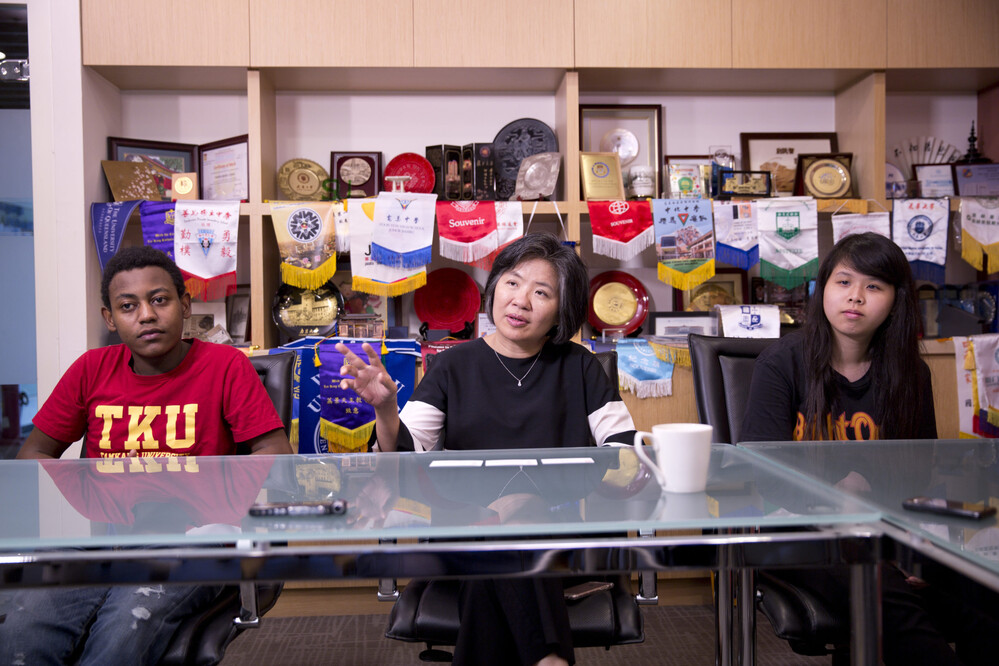
We selected Tamkang University for its 2016 Asian Community Leadership Seminar. As a rare large-scale program of learning away from home, it involved three universities in three countries, including Ritsumeikan University in Japan, Kyung Hee University in South Korea, and Tamkang University in Taiwan. The program took three weeks, and attracted a total of 26 participants from six countries. From the perspectives of cross-cultural studies, peace research and futures studies, this seminar guided the participating students to deeply explore the historical and social issues endemic in Asia, rendering itself monumentally significant.
The beautiful scenery of the estuary of Tamsui River gradually comes into view when one enters the Tamsui District by the MRT. The bustling Tamsui Old Street is a must-visit site for domestic and foreign tourists. Walking toward Tamkang University along the slightly steep and narrow Yingzhuan Road, one may find its tranquil campus in the midst of this lively tourist destination. Besides, seeing people of different races and skin colors shuttling between different buildings on the campus, one may for a moment feel like visiting a foreign university.
Tamkang University: the vanguard of futures studies
Founded as Tamkang Junior College of English by Mr. Chang Ching-sheng and his son Dr. Clement C. P. Chang with their grand vision and elevated to the university status in 1980, Tamkang University still embraces its original vision and does not slow its pace of internationalization. By mid-2017, Tamkang University has established international partnerships with more than two hundred higher education institutions across the world, and has sent nearly one thousand students on average annually for studying abroad, overseas internship or international contests. The university has also attracted the enrolment of around two thousand foreign students from more than seventy countries. The body of international students it accommodates is among the largest in Taiwan.
Recognizing the value of exchange with partner universities, the Office of International and Cross-Strait Affairs, Tamkang University, enthusiastically organized the 2016 Asian Community Leadership Seminar in collaboration with Ritsumeikan University and Kyung Hee University. Ritsumeikan University is known for its cross-cultural studies, and Kyung Hee University for its peace research. Both fields emerged after the end of the Second World War. In this situation, what specialization could Tamkang University offer to exchange with the two universities?
As the Dean of International Affairs, Pei-Wha CHI LEE consulted Mei-Mei Song, an associate professor of the Graduate Institute of Futures Studies, about this mission. “Of all universities in the world, only two set up the Graduate Institute of Futures Studies. One is University of Turku, Finland, and the other is Tamkang University. Similar to cross-cultural studies and peace research, futures studies also emerged in the post-war era. I’ve devoted considerable time and energy to this field, and the courses mainly proceed in the forms of workshop and group discussion. Our target audiences have also extended to enterprises and foreign institutions. I believe that futures studies will be quite appropriate for the exchange in this seminar,” Song claimed. Futures studies have thus become an academic specialization which helps Tamkang University gain international visibility.
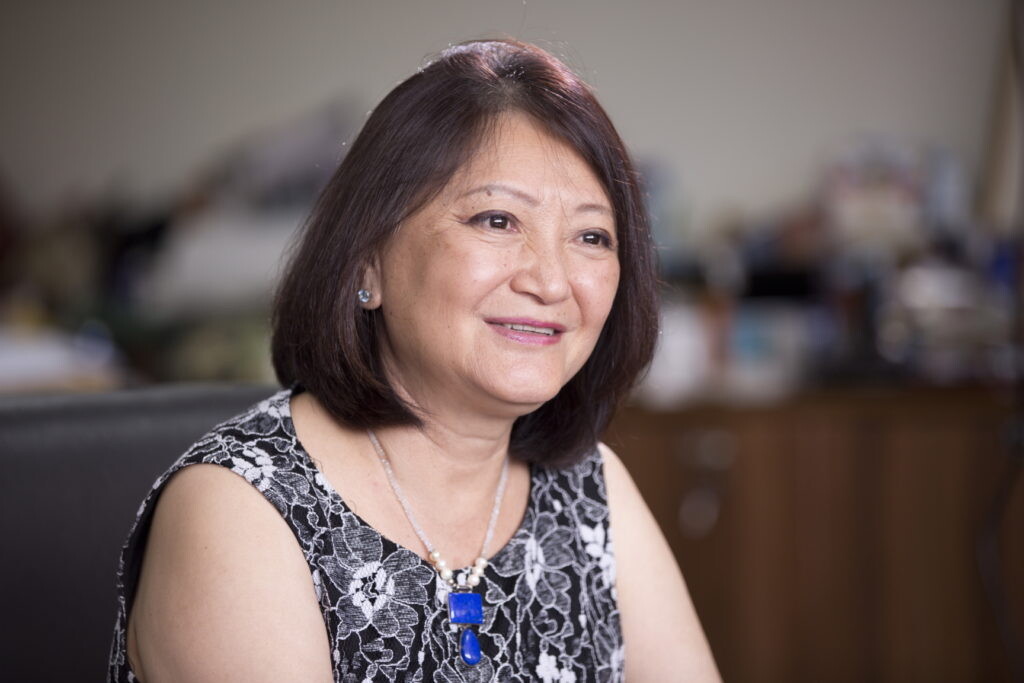
Pei-Wha CHI LEE, the Dean of International Affairs
The Office of International Affairs decided quickly, only to put itself under the relentless pressure of organizing the seminar. After all, it was the office’s first time to undertake such a taxing task that involves three universities in three countries. The cultural misunderstandings, tensions and differences created by the clashes among students in this event have become useful object lessons.
Channeling conflicts and misunderstandings to bring valuable experience
“The more closely the team members work together, the more conflicts and learning opportunities arise among them, which marked a golden opportunity for cross-cultural learning. Tensions escalated among the participating students in Japan and South Korea during the first two weeks of the seminar, and finally erupted in Taiwan during the final week. I therefore slightly modified the seminar setting, allowing the students to release their emotions, resolve their tensions and clarify mutual misunderstandings. In the final presentation, I found that nationality no longer existed as a hindrance within each group. I was deeply touched by their consideration of one another as “human beings” rather than Japanese, Korean and Taiwanese,” so stated Mei-Mei Song, whose eyes brimmed with tears when she talked about the students’ bias-free performance, since she had suffered excessive hair loss due to the stressful task of coordinating the seminar.
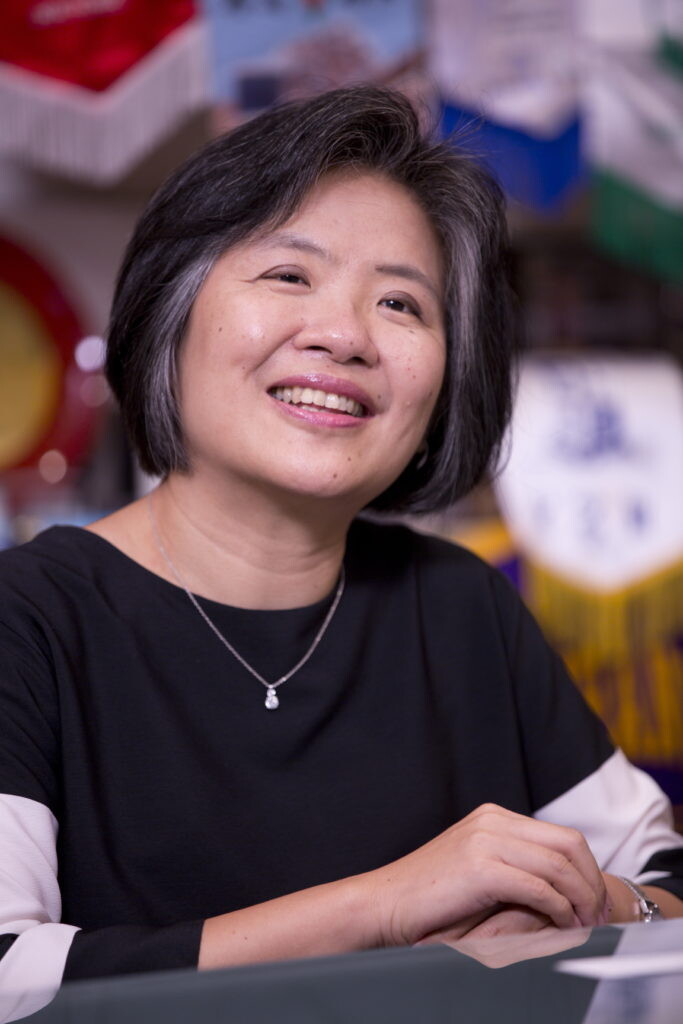
Mei-Mei Song, an associate professor of the Graduate Institute of Futures Studies
Ai-Ling Ding, one of the participants from Tamkang University, mentioned that comfort women is a piece of history shared by the three countries. When discussing this issue, the participants from South Korea were righteously indignant, while those from Japan appeared slightly ashamed and uneasy. Those from Taiwan felt relatively unfamiliar with this issue. Nevertheless, they knew clearly that it was a grudge of the previous generation. “We finally reached a unanimous consensus that wars should be prevented. We also tried to confront our shared history and tackle it by compiling teaching materials.”
The delegation of Tamkang University included students from Taiwan (5), China (1), Haiti (2) and Burkina Faso (2). In comparison with those of Ritsumeikan University and Kyung Hee University, the delegation of Tamkang University played a special role in the seminar. The students from the fourth county not only served as the interpersonal lubricant, but also broadened the horizons of those from Taiwan, Japan and South Korea. Bruno Ménard Germain, a participating student from Haiti, easily spotted the differences among the students from the three countries. “South Korean students were eager to express their opinions although they do not speak fluent English, while Taiwanese and Japanese students were relatively introverted. Students from my country were similar to those from South Korea, which was why I kept encouraging the students from Japan and Taiwan to articulate their views, and tried to make them more confident when speaking English.”
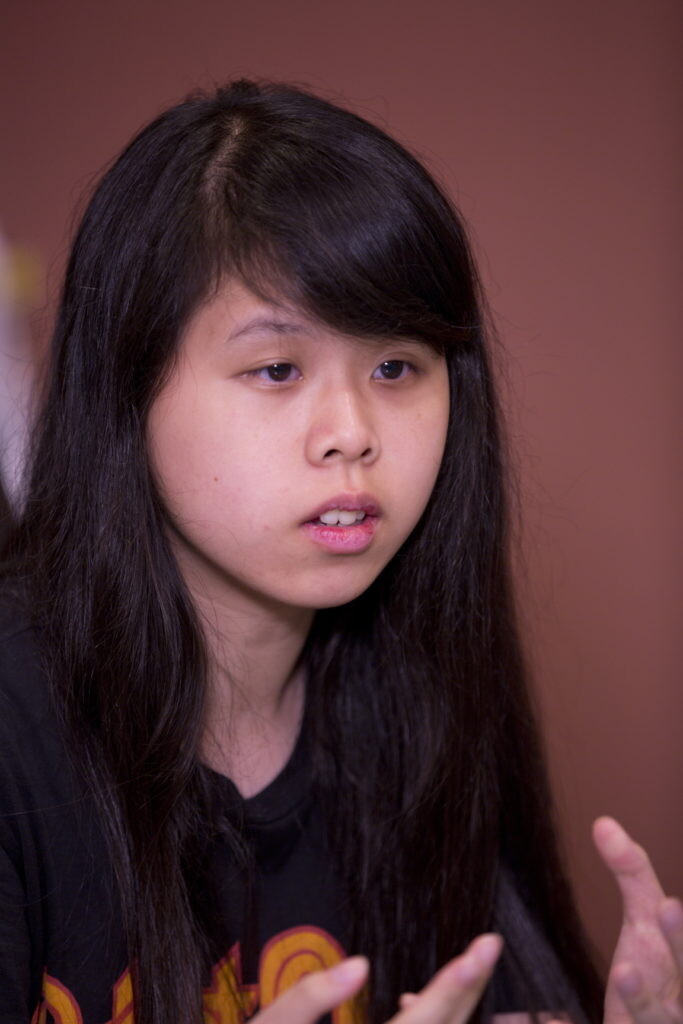
Ai-Ling Ding
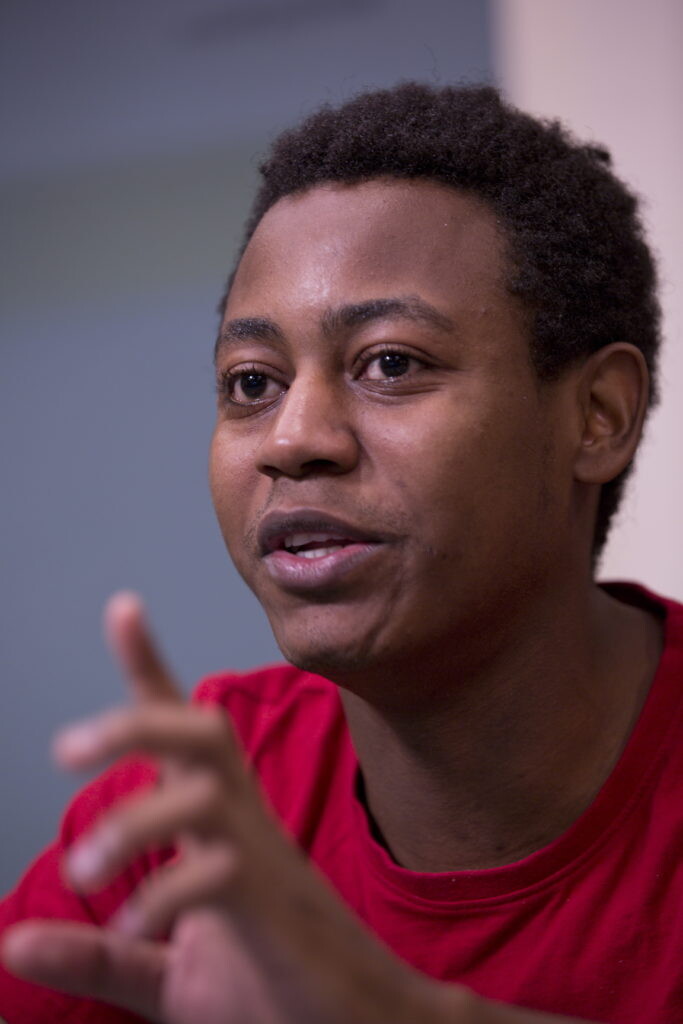
Bruno Ménard Germain
For Bruno Ménard Germain who majors in international relations, the most significant gain he reaped from the seminar was to better understand Asian history. In Haiti, the content of history courses mainly focuses on the Occident. That Central and South Americans know little about Asia or its history is a matter of course. Studying in Taiwan and participating in the seminar, Bruno Ménard Germain broadened his perspective of history and horizons, which made him more confident of bringing his home country a more comprehensive world view after graduation.
Internationalization: not so much a slogan as an objective to be accomplished with solidarity
Prof. Mei-Mei Song attributed the success of the 2016 Asian Community Leadership Seminar to several factors. First of all, the program of learning away from home was not administered at the level of faculty but at the level of university. This mission would be impossible without the whole-hearted support from the Office of International and Cross-Strait Affairs and other relevant administrative sectors, as well as the intense preparation done by the two collaborative universities. For example, Ritsumeikan University invited the faculty members from Tamkang University and Kyung Hee University to meet in Japan for initial preparation. “I originally thought that our counterpart in Japan was making a production of it because this meeting can be held through video conferencing. It was not until I arrived in Japan that I realized the importance of face-to-face communication for teachers, and a fortiori for students.”
Secondly, she believed that, if teachers are going to participate in such a large-scale international exchange program, practical experience of international affairs is a necessary commodity in addition to language skills. She took Miki Horie, a professor from Ritsumeikan University in this program, as an example. Miki Horie had been an exchange student in China as early as in the 1980s before China initiated its economic reform. It was a pioneering action to the eyes of her fellow Japanese. That experience not only broadened her horizons, but also fostered her great tolerance in her teaching practice. She profoundly influenced her students’ thinking, and her influence will definitely endure in the future.
Finally, Mei-Mei Song encouraged teachers who aspire to foster international academic exchange with the following words: “Just do it! Whatever you think of the final outcome, the journey here is definitely worth the ride. It is also a great stimulus for teaching.”
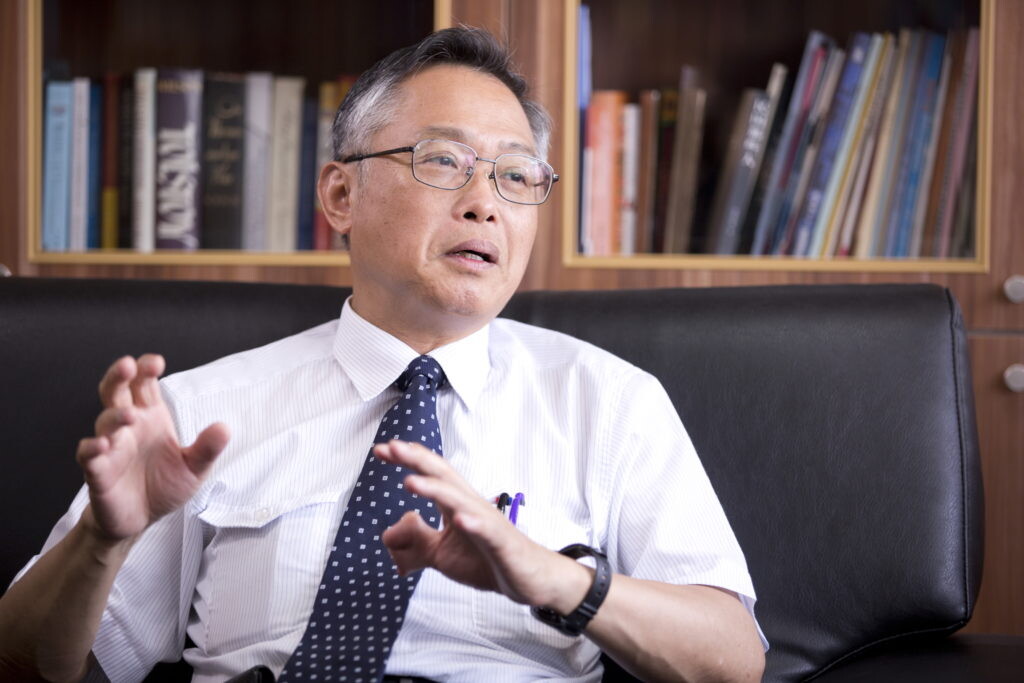
Wan-Chin Tai, the Vice President of Tamkang University
Wan-Chin Tai, the Vice President of Tamkang University, granted the Office of International and Cross-Strait Affairs hordes of accolades. He stated that the program of learning away from home bore more than a passing resemblance to an intensive training camp that vigorously challenged the physical and mental strengths of the participating students. Both the faculty members and administrators needed to prepare for it carefully. Possessing a global vision, Tamkang University tends to encourage its faculty members, whoever has the intent, in substantial exchange with our partner institutions. “Internationalization has long been our coherent strategy for development, and we will keep embracing it in the future,” whether it is executed in the form of spontaneous initiatives or activities under the auspices of the Ministry of Education.
Nothing will happen without an initiator. However, a great achievement can be accomplished only with concerted efforts of all parties involved. Remembering the old adage “United we stand, divided we fall,” the 2016 Asian Community Leadership Seminar epitomized such kind of solidarity.



